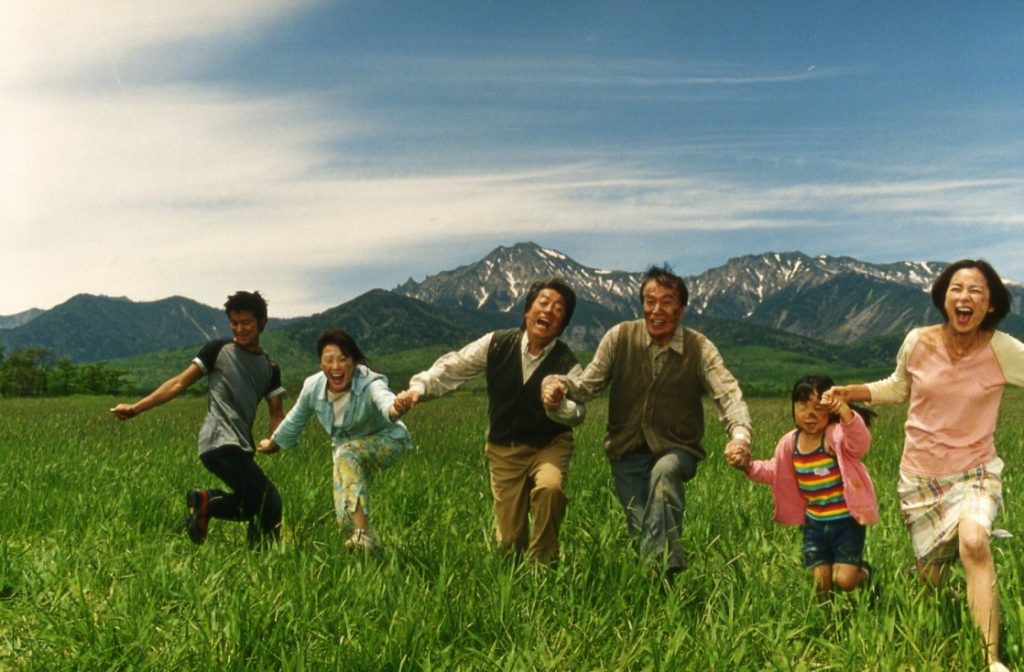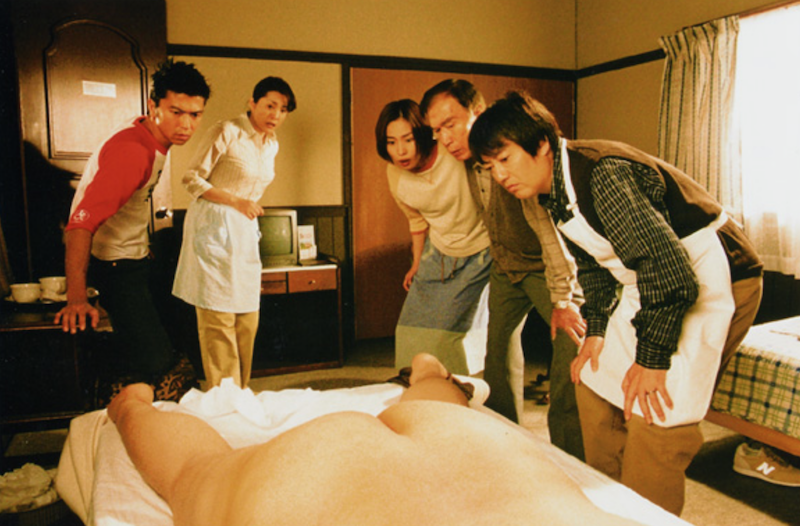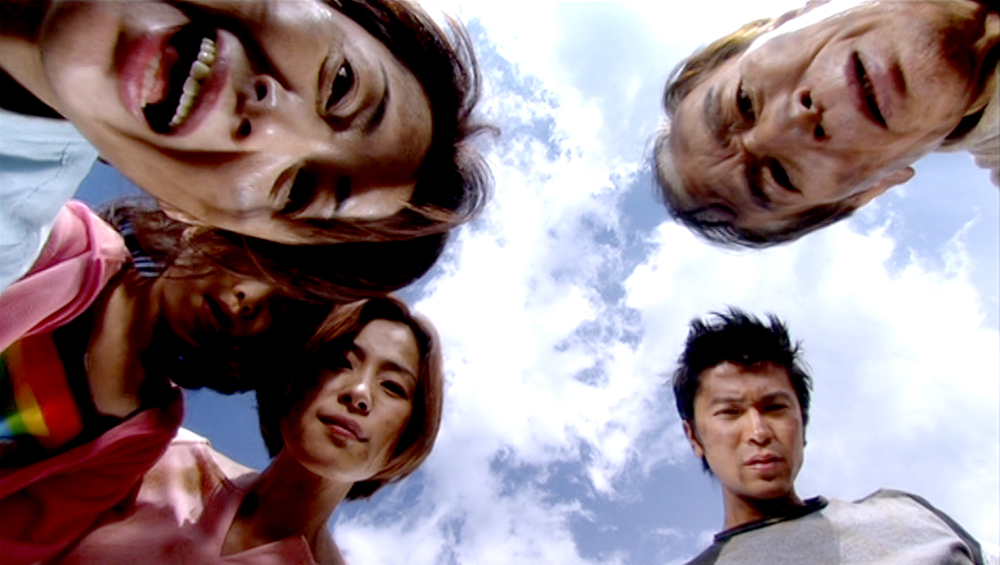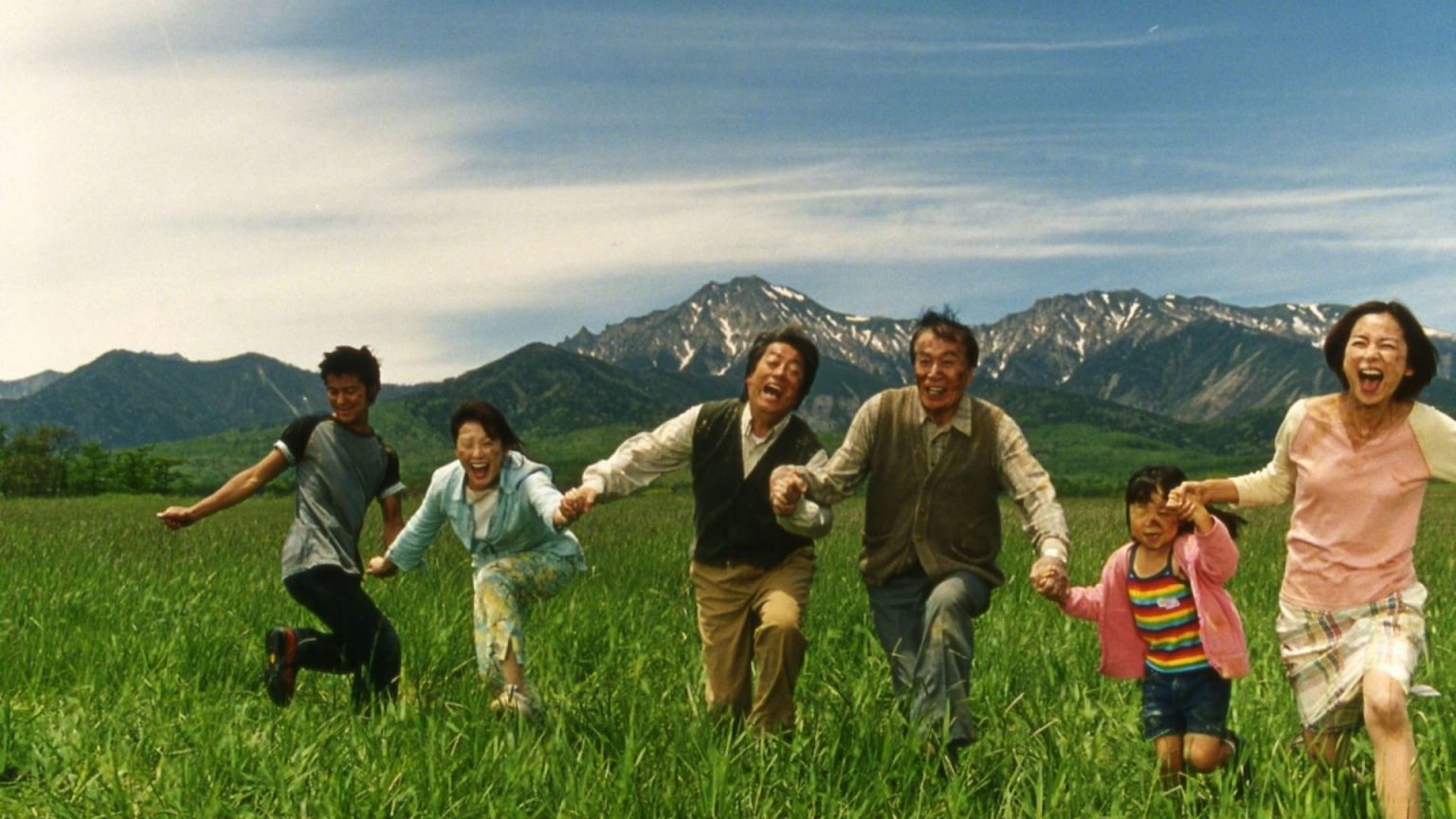
I won’t forget the first time I saw The Happiness of the Katakuris, at the 2001 International Film Festival Rotterdam. The film had me laughing so long and so loud that, stumbling through the exit, I was still in stitches—humming the final song and already reliving the best gags with my companions. A Japanese man came running up to me. He inquired, somewhat incredulously, “Did you really like that film?” I sure did, I said. “Well,” he explained, “I was on the crew. We made it in a week. None of us understood what was going on, but we did it anyway! And I am glad you evidently appreciate so much the result of our work.”
Japanese director Takashi Miike is a cult filmmaker for our time, a maverick in the mainstream and in festival-cinema circuits, too. His work since the early 1990s has been fast, cheap and frequently out of control. Or at least it gives a good impression of all-out chaos. Celebrated and sometimes overrated for excessively violent horror-fantasy thrillers such as Audition (1999), Visitor Q (2001), Ichi the Killer (2001) and Izo (2004), Miike has by now covered most popular genres, as well as some unpopular ones—even venturing into wholesome entertainment for children, with Zebraman (2004, sequel 2010) and The Great Yokai War (2005). Some ferocious devotees scramble to stay abreast of his insanely prolific output; others gave up long ago, unable to track subtle variations within the templates he employs, from robust cop drama to surreal manga adaptation. What’s clear is that working so much, and in so many different production situations and formats, has made a highly skilled craftsman out of him.
Miike takes a welcome break from his frequently gruesome fare with The Happiness of the Katakuris, a camp musical-comedy hoot, made hyper-quickly but on 35mm. It comes on like an outrageously extreme episode of The Simpsons or South Park (even including some animation). A happy-smiley family, led by grimly determined Masao (Kenji Sawada) and his ever-perky wife Terue (Keiko Matsuzaka), relocates to a country estate, hoping to run it as a guesthouse. For a while it looks like no guests will ever show up. (The house is charmingly situated near a rubbish dump.) Then when they do finally arrive, they tend not to stay very long; death comes visiting, too, in a variety of colorful ways.

Clearly Miike takes acute pleasure in mutilating the sacred cow of the nuclear family unit. In a macabre spin on the disquieting pastoralism of Hitchcock’s The Trouble with Harry (1955), ordinary people find themselves matter-of-factly debating procedures for the daily bother of removing dead bodies. As maintenance of the family’s new life tumbles out of control, not even the rising rate of catastrophe can stanch the flow of songs, dances and sickeningly pastel imagery. “Cast your magic love spell on me!” sings single-mother Shizue (Naomi Nishida), the Katakuris’ adult daughter, in a particularly soppy ballad. Yet in Miike’s universe, poses of innocence meet with especially dire consequences. Fate finds Shizue entangled with Richard (Kiyoshirô Imawano), a pathological liar in a gleaming military suit, whose topics of discourse range from the atrocious Iraq war to the annoying peccadilloes of the British Royal Family—of which, naturally, he claims to be a member. Meanwhile a nearby volcano (Mt. Fuji itself) also figures in the plot, though no one in our weird family ever seems to catch wind of this news blasting from the TV set.
Like an Austin Powers movie, but made for a fraction of the cost, The Happiness of the Katakuris throws in a bit of everything: scatological jokes, movie pastiche, satire of national manners. Felicitous micro-touches abound, as when snare-drum beats of one wacky musical number are timed to coincide with the heaps of dirt shoveled on a wrapped-up corpse in a hole. As I learned from the guy who politely accosted me at Rotterdam, a great deal of improvisation went on at every level, from swiftly bashed-together special-effects devices to dialogue and dance choreography. No doubt any viewer unfamiliar with the minutiae of recent Japanese pop culture will miss many of the few hundred jokes, allusions and put-ons happening here. But there’s plenty left over with which to whip up an infectious ramshackle energy, close to the buzz that merrily stoned cinephiles derive from the crazy cable-streamed humor of Eric Andre or Tim & Eric.
Still, the film historian in me wonders: Am I the only person in the world who suspects that Miike may have gathered a little inspiration for The Happiness of the Katakuris from a roughly similar American Z-budget farce from 1985, The Outdoorsters (a.k.a. When Nature Calls), directed by the largely unsung Charles Kaufman (also of Mother’s Day, 1980)? Whatever the many sources of this delirium, I can promise that you, too, will be singing the final number, in whichever language you please, long after The Happiness of the Katakuris’ 113th minute is done.





